Book review: Iran from a new Indian perspective
In the absence of a debate in India on Iran’s nuclear programme, ‘Troubling Tehran' is a significant first attempt to go beyond Western narratives and ask pertinent questions
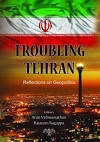 Courtesy: Pentagon Press
Courtesy: Pentagon Press
In the absence of a debate in India on Iran’s nuclear programme, ‘Troubling Tehran' is a significant first attempt to go beyond Western narratives and ask pertinent questions
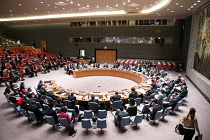 Courtesy: United Nations
Courtesy: United Nations
The recent UNSC Resolution, which mandates the complete destruction of Syria’s chemical weapons, demonstrates that after more than a year, a degree of international agreement on the Syrian issue has been possible. In the evolving situation, Russia will now emerge as a major player
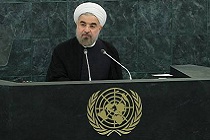 Courtesy: Office of the President of Iran
Courtesy: Office of the President of Iran
In recent days, both the U.S. and Iran have intimated that they seek a broad improvement in relations, signalling a welcome thaw in bilateral ties. What does this mean for Tehran and Washington, and more importantly, how will this development play out in the West Asian region?
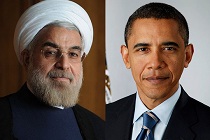 Courtesy: WikimediaCommons
Courtesy: WikimediaCommons
The positive advances made by newly-elected Iranian President Hassan Rouhani and U.S. President Barack Obama at the 68th UN General Assembly indicates a strong potential for a thaw in Tehran-Washington relations. However, it will take sincere efforts from both sides to turn this into concrete reality. Can India help?
 Courtesy: millerm217/Flickr
Courtesy: millerm217/Flickr
India’s extreme dependence on imported energy often renders our economy vulnerable in the face of geopolitical changes. Given the high financial viability, India, being the world’s second-largest producer of sugarcane, should emulate Brazil by replacing petrol with ethanol as fuel.
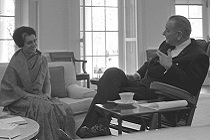 Courtesy: Jerchel/WikimediaCommons
Courtesy: Jerchel/WikimediaCommons
India often finds itself in the right place at the wrong time or vice versa, as our dogma of non-alignment trumps honest calculations of self-interest in policy-making – rendering it unfavourable. The national interest, hence, calls for selective alignment on some issues with Washington and on others with Beijing
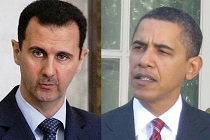 Courtesy: Freedom House/Flickr
Courtesy: Freedom House/Flickr
Despite rising international opposition, U.S. President Barack Obama is ready to penalise the Syrian regime for an alleged chemical attack in Ghouta, Syria, last month. The justifications given by the U.S. for an armed attack are questionable, and such retaliatory action will destabilise the entire region
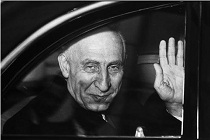 Courtesy: Harry S. Truman Library and Museum/ Wikimedia Commons
Courtesy: Harry S. Truman Library and Museum/ Wikimedia Commons
This daily column includes Gateway House’s Badi Soch – big thought – of the day’s foreign policy events. This Badi Soch deliberates on the timing of the CIA’s admission of involvement in overthrowing Iran’s Prime Minister Mohammed Mossadegh in 1953 and the implications of this disclosure
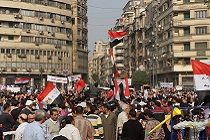 Courtesy: Zeinab Mohamed/Flickr
Courtesy: Zeinab Mohamed/Flickr
Today, the role Wahabbism plays in geopolitics poses a severe security risk not just to the West but also to the Muslim world. The West needs to rethink its strategy of promoting Wahabbi International, and realise that Wahabbism cannot be a moderated geopolitical asset
 Courtesy: Center for American Progress Action Fund/Flickr
Courtesy: Center for American Progress Action Fund/Flickr
The U.S. Secretary of State’s visit to India comes at a time when India is witnessing significant realignments in its domestic politics while the U.S. is busy tackling its cyber-spying allegations. Amidst these preoccupations, will the upcoming India-U.S. talks churn out substantive outcomes?